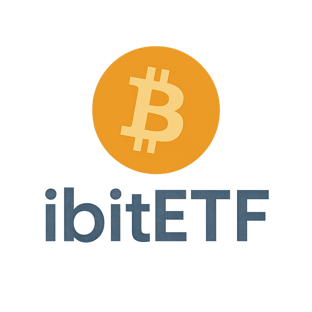The Rise of Bitcoin ETFs: Driven by Retail Investors
3/21/20242 min read
Bitcoin ETFs' Hot Start Driven by Retail Investors
Recent data indicates that the initial success of Bitcoin ETFs can largely be attributed to retail investors. This is evident from the average trade size of the largest spot Bitcoin ETF, BlackRock's iBit, which hovers around $13,000. Such figures suggest that a significant portion of the demand for these ETFs is coming from nonprofessional investors.
As the popularity of cryptocurrencies continues to grow, more and more investors are seeking exposure to digital assets. However, many individuals may find it challenging to navigate the complex world of cryptocurrency trading. This is where Bitcoin ETFs come into play, offering a more accessible and familiar investment vehicle.
The Appeal of Bitcoin ETFs for Retail Investors
Bitcoin ETFs provide retail investors with several advantages that make them an attractive option. Firstly, they offer exposure to Bitcoin without the need for investors to directly hold or manage the cryptocurrency themselves. This eliminates the technical complexities and security concerns associated with owning and storing digital assets.
Secondly, Bitcoin ETFs provide investors with the opportunity to diversify their portfolios. By investing in an ETF, individuals can gain exposure to Bitcoin while still maintaining a balanced investment strategy. This is particularly appealing for retail investors who may not have the resources or expertise to effectively manage a diverse cryptocurrency portfolio.
Furthermore, Bitcoin ETFs offer the convenience of trading on traditional stock exchanges. This familiarity and ease of access make it more appealing for retail investors who are already comfortable with these platforms. Additionally, ETFs provide liquidity, allowing investors to buy or sell shares at any time during market hours.
The Implications of Retail Investor Demand
The significant demand for Bitcoin ETFs from retail investors has both positive and negative implications for the market. On the positive side, it indicates a growing interest in cryptocurrencies among a wider audience. This increased adoption has the potential to drive further innovation and development in the cryptocurrency space.
However, the dominance of retail investors in the Bitcoin ETF market also raises concerns about market volatility and potential risks. Retail investors may be more prone to herd mentality and irrational decision-making, which can lead to sudden price fluctuations. Additionally, the lack of professional oversight and experience among retail investors may increase the risk of fraudulent activities or scams.
Regulators and industry experts are closely monitoring the situation to ensure that appropriate safeguards are in place to protect retail investors and maintain market stability. As the Bitcoin ETF market continues to evolve, it is crucial to strike a balance between accessibility for retail investors and responsible investment practices.
In conclusion, the initial success of Bitcoin ETFs can largely be attributed to retail investors. The appeal of these investment vehicles lies in their accessibility, diversification benefits, and familiarity with traditional stock exchanges. While the retail investor demand is a positive indication of growing interest in cryptocurrencies, it also raises concerns about market volatility and potential risks. Striking the right balance between accessibility and responsible investment practices is essential for the future of Bitcoin ETFs.
Invest
info@ibitetf.com
